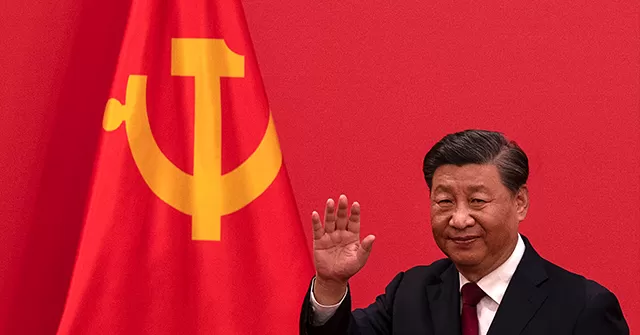It is no secret that China has become a dominant force in the global economy in recent years. With its massive manufacturing capabilities and abundant resources, the country has cemented its position as a major player in the international trade market. However, this dominance has come at a cost, and it is a cost that we must be willing to pay if we want to secure our future. It is time for us to decouple from China on rare earths.
Rare earths are a group of 17 elements that are crucial for the production of various high-tech products, including smartphones, electric vehicles, and defense equipment. China is the world’s largest producer of rare earths, accounting for over 70% of the global supply. This has given the country a significant advantage in the global market, allowing it to control the prices and supply of these essential elements.
For too long, we have been dependent on China for our rare earth needs. We have turned a blind eye to the potential risks of relying on a single country for such a critical resource. But now, as tensions between the US and China continue to rise, it has become clear that we must take action to secure our own supply of rare earths.
The hard work of decoupling from China on rare earths should have started more than a decade ago. However, due to various factors, including the low cost of Chinese rare earths and the complexity of establishing new supply chains, this issue has been put on the back burner. But we can no longer afford to delay this crucial step. The time to act is now.
One of the main reasons why we must decouple from China on rare earths is the threat to our national security. As we have seen in recent years, China has not shied away from using its control over rare earths as a bargaining chip in trade negotiations. By relying on China for such a critical resource, we are putting ourselves at risk of being at the mercy of their political agendas. We must take control of our own rare earth supply to ensure our national security and protect our economy.
Moreover, decoupling from China on rare earths will also have significant economic benefits. By diversifying our supply chain and reducing our dependence on China, we can create new jobs and boost our economy. It will also provide an opportunity for other countries, including the US, to enter the market and compete with China, leading to fairer prices for rare earths.
But the benefits of decoupling from China on rare earths go beyond just national security and economic gains. It is also a step towards promoting ethical and sustainable practices in the production of these elements. China’s rare earth mining industry has been plagued with environmental and labor issues, including pollution and exploitation of workers. By reducing our reliance on Chinese rare earths, we can support more responsible and ethical production methods.
Some may argue that decoupling from China on rare earths is easier said than done. And they are not entirely wrong. It will require significant effort and investment to establish new supply chains and develop alternative sources of rare earths. But the longer we delay this crucial step, the more difficult it will become. We must take action now, before it’s too late.
The good news is that we are not starting from scratch. In recent years, there have been efforts to develop alternative sources of rare earths, including recycling and exploration of new deposits. The US has also taken steps to reduce its dependence on Chinese rare earths, with the Defense Department investing in domestic production capabilities. But these efforts need to be accelerated and supported by the government and private sector to make a significant impact.
In conclusion, the time has come for us to decouple from China on rare earths. We must take control of our own supply to protect our national security, boost our economy, and promote ethical practices. The hard work should have started more than a decade ago, but it must start today. Let us not wait for another crisis to realize the importance of this crucial step. The future of our country depends on it.


